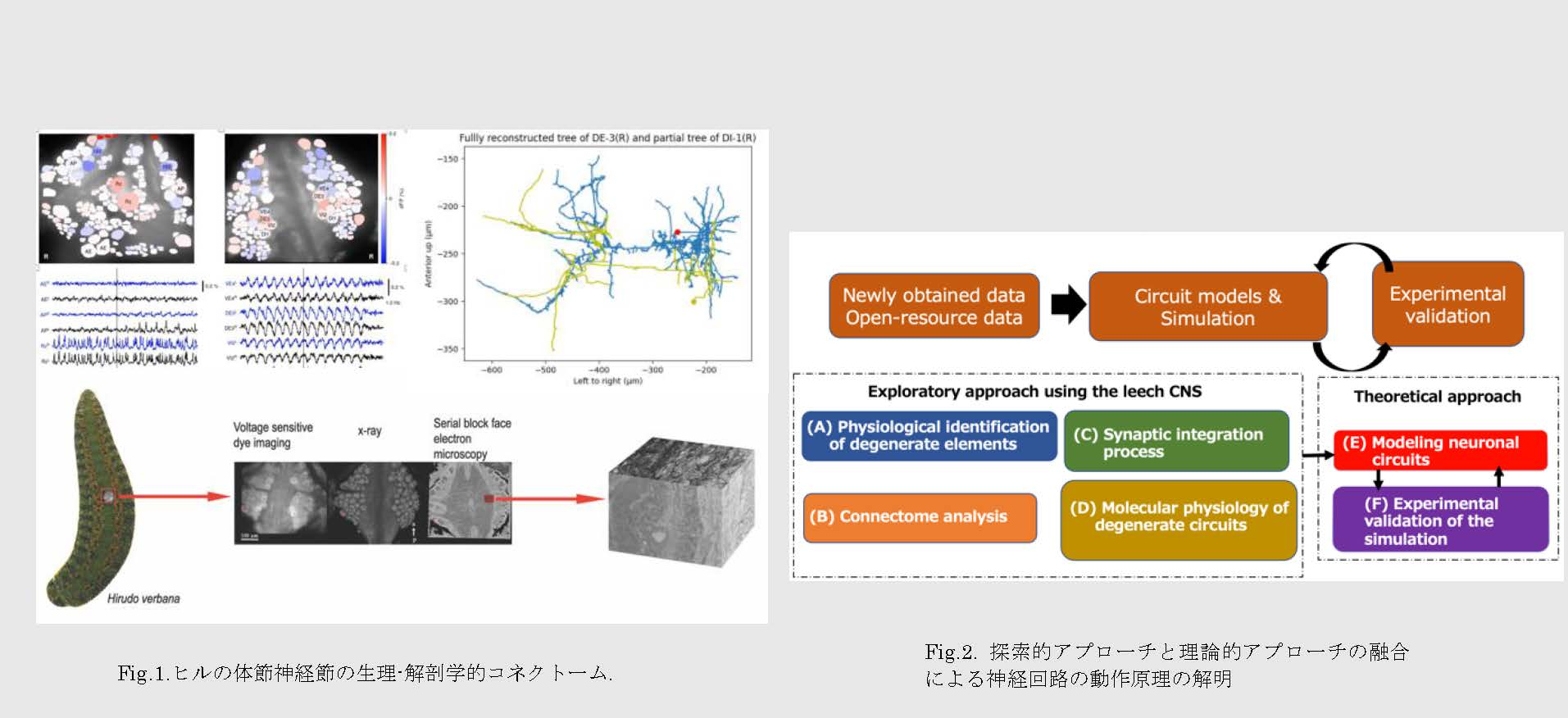
RIES
Research Institute for Electronic Science, Hokkaido University
北海道大学
電子科学研究所

LAST UPDATE 2024/08/09
-
研究者氏名
Researcher Name冨菜雄介 Yusuke TOMINA
特任助教 Project Assistant Professor -
所属
Affiliation北海道大学 電子科学研究所
光情報生命科学分野/北海道大学ニコンイメージングセンター
Research Institute for Electronic Science, Hokkaido University
Laboratory of Information Biophotonics / HU Nikon Imaging Center -
研究キーワード
Research Keywordsシナプス
神経回路
高速蛍光3Dイメージング
ヒル・線虫
Synapse
Neuronal circuit
High-speed fluorescent 3D imaging
Leeches and nematode worms
- 研究テーマ
Research Subject -
神経回路網の動的制御機構の解明
Dynamic control mechanisms of neural networks
研究の背景 Background of the Research
脳神経回路網では、異なる特徴をもつ神経細胞群が類似の機能を発揮するという縮重性を示す。適応的な行動発現に際して、大規模な神経細胞群からなる脳内において縮重した個々の神経細胞がどのように動的に制御されているのか、その機構は未解明である。
Brain's neuronal networks exhibit degeneracy, in which groups of neurons with different characteristics perform similar functions. The mechanism of dynamic regulation of individual neurons in the brain, which is composed of large groups of neurons, during the expression of adaptive behavior is not yet understood.
研究の目標 Research Objective
本研究では、シナプスレベルでの網羅的な解剖-生理学研究に適したヒルや線虫といったシンプルな神経系をモデルとして、光学計測をはじめとする探索的実験アプローチと実験データに基づく理論的アプローチの両輪により、縮重した神経回路網の動作原理を理解する。
Using simple nervous systems such as leeches and nematodes as models suitable for comprehensive anatomy-physiology studies at the synaptic level, we will apply both exploratory experimental approaches (e.g. optical measurement) and theoretical approaches based on experimental data to understand the operating principles of the neural networks with degeneracy.
研究図Figures

Fig.2. 探索的アプローチと理論的アプローチの融合による神経回路の動作原理の解明
論文発表 / Publications
Tomina and Wagenaar. eLife 6, e29839 (2017). Tomina & Wagenaar.Bio-protocol 8(5), e2751 (2018). 冨菜雄介. 技術ノート: ヒル神経系における両側型顕微鏡を用いた網羅的膜電位イメージング法. 比較生理生化学 35(3) (2018) Ashaber, Tomina, Kassraian,…Wagenaar. eLife 10 e61881 (2021).
研究者連絡先 / HP
- tomina
 es.hokudai.ac.jp
es.hokudai.ac.jp - https://researchmap.jp/lobster